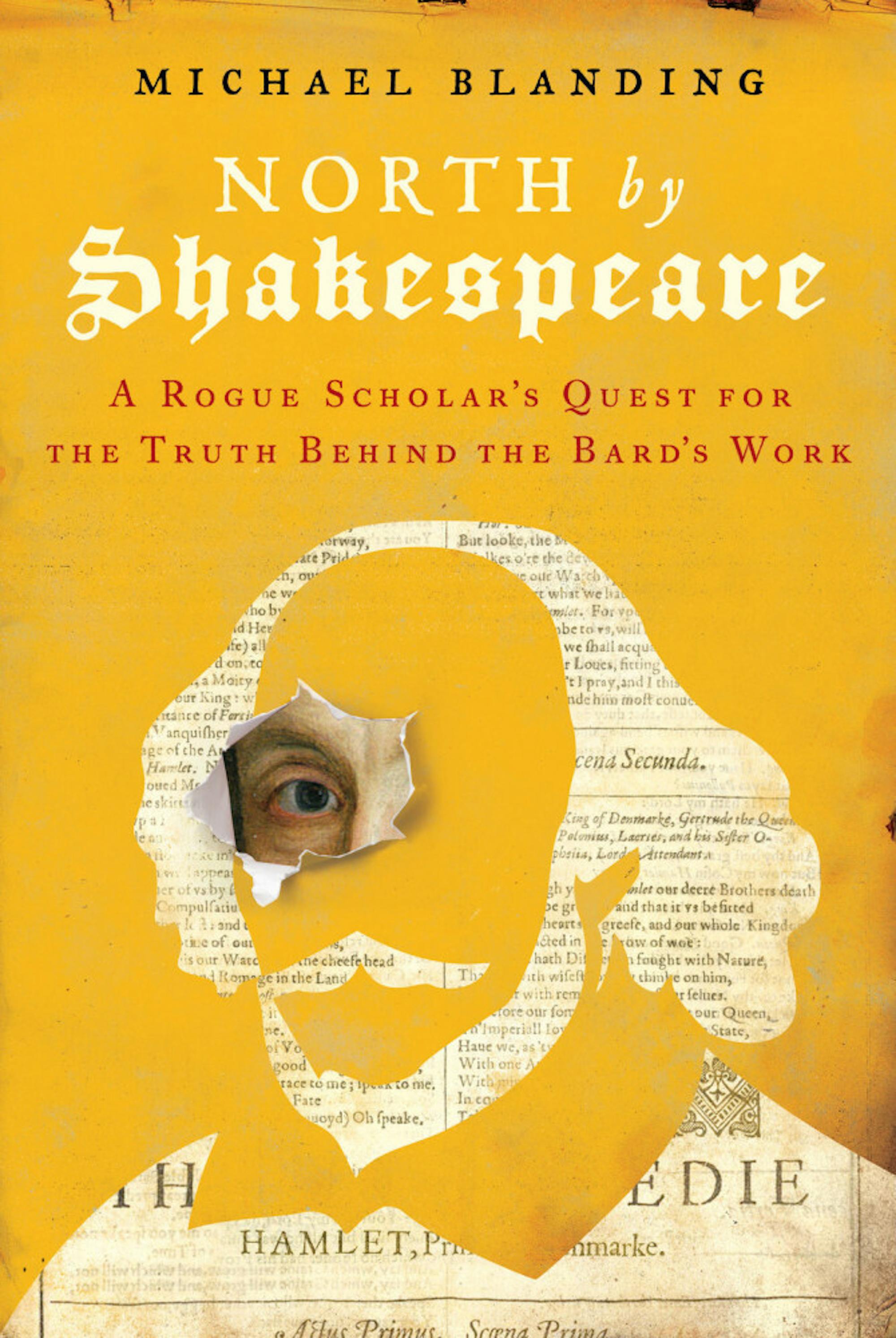Brookline Booksmith hosted a conversation on March 30 with Michael Blanding, the author of "North by Shakespeare: A Rogue Scholar’s Quest for the Truth Behind the Bard’s Work" (2021). Blanding’s “rogue scholar” is his colleague Dennis McCarthy; in the book, he discusses McCarthy’s journey to uncover the controversial truth behind William Shakespeare, a man whose literary prowess the world has long considered a fact.
Blanding’s book challenges the integrity of Shakespeare’s work, tackling the question: Where exactly did Shakespeare get his stories? The author chalked his research up to the words of author Bill Bryson, whoremarked that “Shakespeare was a wonderful teller of stories so long as someone else has told them first.”
Blanding and McCarthybelieve that Shakespeare’ssource plays — used for nearly every one of his works — came almost exclusively from a writer named Thomas North.
During the conversation, Blanding admitted that, like many other scholars, he was initially skeptical of McCarthy’s findings. He recalled that as he dove further into his colleague’s research, he found increasingly compelling the notion that Shakespeare was taking inspiration from North’s work.
“Shakespeare wrote the plays,” Blanding said. “[He adapted his work from] this other writer and [made] it his own.”
Along with author June Schlueter, McCarthy used computerized plagiarism software to cross-reference Shakespeare’s work with one of North’s manuscripts. After the two published a book on their findings, Blanding said he pitchedthe story to the New York Times, landing the front page with his article, “Plagiarism Software Unveils a New Source for 11 of Shakespeare’s Plays.” To Blanding’s pleasure, his article garnered positive reviews, “although mostly by people snickering about the fact that Shakespeare was a plagiarist,” he said.
McCarthy’s interest did not end with Shakespeare’s lapse in academic integrity; in toe with McCarthy’s research, Blanding wanted to delve deeper into the “larger theory about Thomas North” and the way he combined manuscripts from various sources — namely George North, who was likely a cousin of Thomas North— into the very plays for which Shakespeare is a household name.
Blanding credited the inspiration for his book with his colleague’s struggle. Despite the veritability of his research, McCarthy had a difficult time getting his work off of the ground; thus, Blanding resolved to write a book distilling not just McCarthy’s controversial findings, but the essence of his “quest to prove these ideas” and examine how “a story can move around the world.”
Blanding’s book joins McCarthy on his venture to find the root of Shakespeare’s "Hamlet" (1603). In his early research, Blanding explains, McCarthy discovered that the Scandinavian legend Shakespeare resold is not the only act of plagiarism marking one of the playwright’s most iconic works. The "Hamlet" that lines bookshelves (and English students’ nightmares), Blanding explains, is a derivative of “Ur-Hamlet,” a play predating Shakespeare’s, but its exact year of publication and author remain unknown.
Naturally, McCarthy’s next step was to identify the so-called “EnglishSeneca”behind "Hamlet."Blanding describes how his colleague’s treasure hunt pointed him towards Thomas North, as various clues hinted at the north winds and the writer’s known translations of Plutarch, a Greek philosopher. Using King Hamlet’s renowned soliloquy,Blading explains, McCarthy consulted Thomas North’s work and “deduced that ... North was the ‘English Seneca,’ this author of the ‘Ur-Hamlet.’"
To McCarthy’s “uneasy conclusion,” Blanding said, his continued research suggested that "Hamlet" was far from the only play that Shakespeare lifted from Thomas North. In "Greene’s Groats-Worth of Wit," (1592) for example, McCarthy unearthed the first reference to Shakespeare as an “upstart crow” who passes others’ works as his own, Blanding said.
According to Blanding, McCarthy discovered that North had lived a worldly life “as a lawyer, as a soldier, as a diplomat,” and amassed amazing experiences; this, he explained, is crucial, considering a main argument against Shakespeare’s “authorship of the plays” is that he seems to lack “the biography to have had the experiences” that would grant him access to the descriptive, complex jargon he uses in his plays.
Blanding notedes how many Shakespearean scholars do not recognize the same links between Thomas North and the playwright’s “indelible characters” and events. Nevertheless, Blanding emphasized that many of Shakespeare’s characters do not align with his lifetime.
“It is only by interpreting them through source plays written decades earlier,” Blanding said, that their existence can then seem relevant to Shakespeare.






